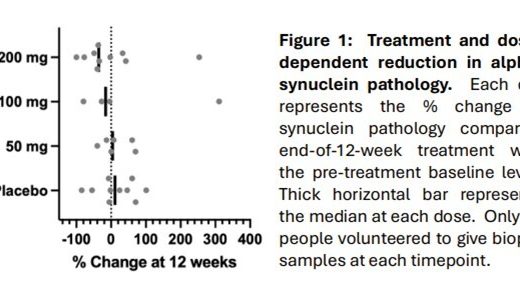
Critical Path Institute (C-Path) and the Center for Health + Technology (CHeT) at University of Rochester today announced the release of two seminal publications about digital health technologies for Parkinson’s. These technologies, such as smartphones and wearable sensors, offer an opportunity for objective, frequent and remote assessment of people with Parkinson’s.
With 10 million people living with Parkinson’s worldwide, collaboration and data sharing are crucial for driving innovation in drug development for the fastest-growing degenerative neurological condition.
Research leaders at CHeT have joined forces with organizations and regulators through C-Path’s Critical Path for Parkinson’s (CPP) Consortium, a precompetitive public-private partnership. CPP aims to accelerate the regulatory endorsement of digital tools in Parkinson’s clinical trials through its Digital Drug Development Tools (3DT) initiative.
In June 2023, the Journal of Parkinson’s Disease published two open access manuscripts, representing companion papers from this partnership that detail steps in conducting interviews of people with Parkinson’s who participated in a clinical research study using smartphones. The manuscripts report on relevant symptoms in early Parkinson’s and assess the relevance of digital measures from a smartphone application and smartwatch from the patient perspective.
The study was led by Jamie Adams, M.D., Associate Professor of Neurology and Associate Director of CheT at the University of Rochester and Jennifer Mammen, Ph.D., Assistant Professor at the University of Rhode Island, with support from CPP.
This project pioneers a new path to efficiently advance tools aligned with the patient voice by engaging with regulatory agencies early and often. C-Path remains committed to learning what matters most to people living with Parkinson’s.”
Diane Stephenson, Ph.D., CPP Executive Director
Access the full manuscripts here:
“These manuscripts describe a novel methodology that will help inform the use of digital health technologies in clinical trials for Parkinson’s disease and support more objective and patient-centered measures. The goal is to enable efficient, data-driven, and patient-centric utilization of digital health technologies to speed therapeutic development,” said Adams. “Sharing the results with the study participants and witnessing how this information helped them in new ways has been most rewarding.”
John Crawford, a CPP advisor, Parkinson’s advocate, and manuscript coauthor states, “Digital health technologies have the potential to significantly impact Parkinson’s management and have already revolutionized clinical trial conduct. Their advancement expedites trials, enhances intelligence, reduces costs, and ultimately accelerates the delivery of new therapies and technologies to patients.”
The new publications coincide with CPP’s participation in the World Parkinson’s Congress taking place in Barcelona, Spain July 4-7, 2023. CPP will present two posters, Recommendations for Parkinson’s Clinical Trials using Digital Health Technologies and Worldwide Collaborative Framework for Optimizing New Parkinson’s Treatment Trials with Patient Centric Outcome Measures, at the conference coauthored by people living with Parkinson’s highlighting the importance of worldwide collaborations.
Get the source article here


